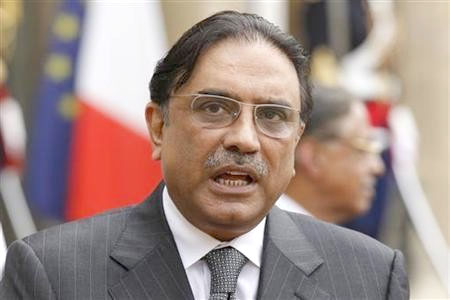 Diplomatic pressure mounted on Syrian President Bashar Assad on Monday after Qatar, previously a major supporter, shut its embassy in Damascus and the European Union said it was considering tougher sanctions. Meanwhile, Syria saw its first outbreak of sectarian violence in four months of protests against Assad’s autocratic rule when at least 30 people were killed at the weekend in clashes between rival communities in the city of Homs. Assad has responded to the unprecedented threat to his rule with promises to reform and offers of dialogue, coupled with a fierce crackdown in which, rights groups say, some 1,400 people have been killed and 10 times more arrested.
Diplomatic pressure mounted on Syrian President Bashar Assad on Monday after Qatar, previously a major supporter, shut its embassy in Damascus and the European Union said it was considering tougher sanctions. Meanwhile, Syria saw its first outbreak of sectarian violence in four months of protests against Assad’s autocratic rule when at least 30 people were killed at the weekend in clashes between rival communities in the city of Homs. Assad has responded to the unprecedented threat to his rule with promises to reform and offers of dialogue, coupled with a fierce crackdown in which, rights groups say, some 1,400 people have been killed and 10 times more arrested.
But the demonstrations have grown in strength and spread from small rural towns to cities the length and breadth of the country. Assad, once courted by the West as a possible moderate in the region, is becoming increasingly isolated internationally, with only Iran keeping up its support. Qatar was a major backer of Syria until protests broke out in March, but relations deteriorated when protesters began to be killed by Assad’s security forces. Qatar withdrew its ambassador from Damascus and closed its embassy last week after two attacks on the embassy compound by militiamen loyal to Assad, diplomats in the Syrian capital told Reuters on Monday.
The EU has already imposed travel bans and asset freezes on 34 Syrian individuals and entities, but British Foreign Secretary William Hague said after a meeting of EU foreign ministers in Brussels “work now needs to start so we can add to that if necessary over the coming days and weeks.” “The situation remains very serious and if anything (is) deteriorating,” he told reporters. “President Assad should reform or step aside.” In the central Syrian city of Homs, clashes between pro-Assad residents and opponents of the president erupted Saturday after the bodies of Assad supporters were returned to their relatives mutilated, Rami Abdelrahman, head of the Syrian Observatory for Human Rights, said Monday.
Homs has been a focal point of the uprising since the military stormed it two months ago to try to crush street protests calling for Assad to quit after 11 years in power. The city is a microcosm of Syria’s religious mosaic with a Sunni majority living alongside minority groups, including Christians and Alawites. “At least 30 civilians were killed … they fell after civil fighting between pro- and anti-regime (residents) started on Saturday,” the Observatory said in a statement. “These clashes are a dangerous development that undermines the revolution and serves the interests of its enemies who want to turn it into a civil war,” he said.
Mohamad Saleh, an activist and a resident of Homs, said there was no more fighting on Monday but residents were tense. He said a group of men, including four policemen, went missing on Thursday. The bodies of four of them were found on Saturday with their eyes gouged out. Six more bodies were found Sunday. In eastern Syria, residents of Albu Kamal, on the border with Iraq, held talks on Monday with troops besieging the town to avoid an assault after defections among security forces who had tried to quell street demonstrations there, residents said.
They said Alawite troops were sent from the west of the country after thousands took to the streets, prompted by killings by Military Intelligence agents of five protesters on Saturday, including a 14-year-old boy. The crowds overwhelmed soldiers and secret police. Residents said around 100 Air Force Intelligence personnel and the crew of at least four armored vehicles joined the protesters. “A senior officer from (the port city) of Tartous is now talking with Albu Kamal notables to hand over within 10 days weapons stockpiles the protesters seized after the defections,” said one activist, who declined to be named for fear of arrest. Albu Kamal is on the eastern edge of the province of Deir Al-Zor, where hundreds of thousands protested on Friday. – Arabnews












